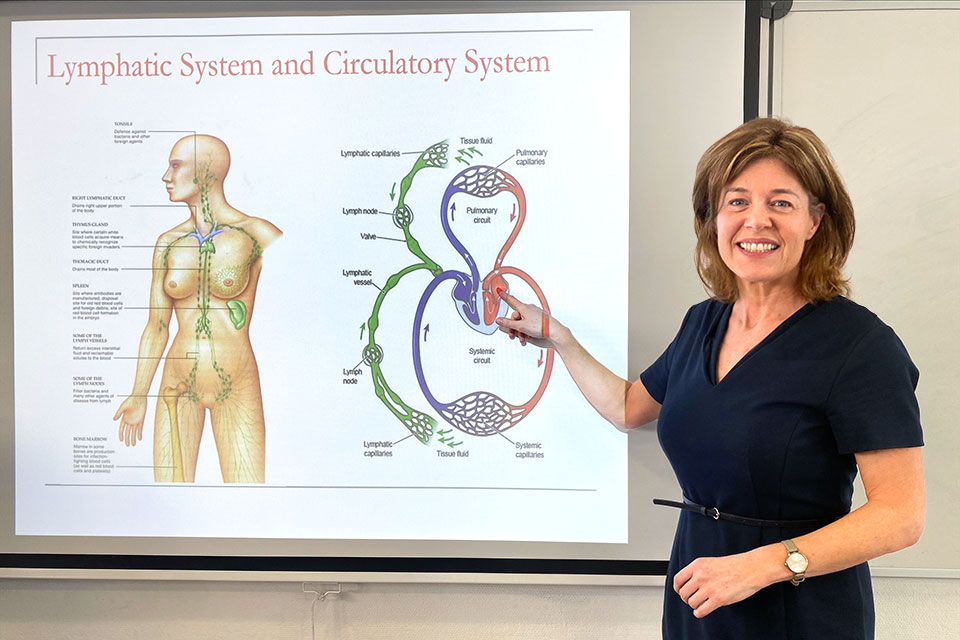Dr. Anya Hillery Set to Research Biotechnology Breakthroughs
Pharmaceutical scientist, Anya Hillery, Ph.D. (Health Sciences), has received Saint Louis University's Beaumont Scholarship Research Award to explain the role of mRNA vaccines and their medical potential.
Dr. Hillery will use the award to conduct research for a new publication, "From COVID Saviour to the Cure for Cancer: Vaccines, mRNA & the Biotechnology Revolution."
The Beaumont Scholarship Research Award is designed to foster research and scholarly activity within Saint Louis University.
Dr. Hillery's research background is in the field of nanoparticles, which, put simply, are the delivery system for mRNA vaccines.
"Without the nanoparticle delivery system to protect and deliver the mRNA code to our cells, there would be no successful mRNA vaccines," she said. "mRNA carries a message to our cells to make the spike proteins of the coronavirus, which in turn prime our immune system against the virus. Then, if we should encounter coronavirus in the future, our immune system is already primed and ready to protect us."
Her book will outline the background and development of COVID-19 vaccines "which range from conventional, viral-inactivated vaccines to those using novel mRNA biotechnology platforms."
The therapeutic relevance of mRNA is ever-increasing and fundamentally changing the way we tackle disease. Dr. Hillery explained that mRNA codes can be altered to stimulate the immune system to "identify, attack and kill cancer cells." It could also be used to protect against other diseases like HIV/AIDS and malaria.
In an educational setting, "you've got to be able to understand vaccines and promote their benefits," she said. That's why students of medicine must understand how to explain such a new science.
The pandemic accelerated mRNA technologies as billions of dollars were invested in research. Due to this boost, Dr. Hillery understands explaining the discoveries made over the past three years is crucial.
With developments having moved at an accelerated pace, it is understandable that there are gaps in public understanding, which can fuel fears and distrust, resulting in vaccine hesitancy.
"We need scientists out there who are well-versed in vaccine science to aid public understanding and acceptance," she said. "To fill this knowledge gap, the book aims to explain the underlying science and technology in a clear, easy-to-understand way, as well as to provide insights into the future directions of the field."
Dr. Hillery joined SLU-Madrid in 1999. The Department of Health Sciences, Nursing and Public Health is an international branch campus leader in higher education.
